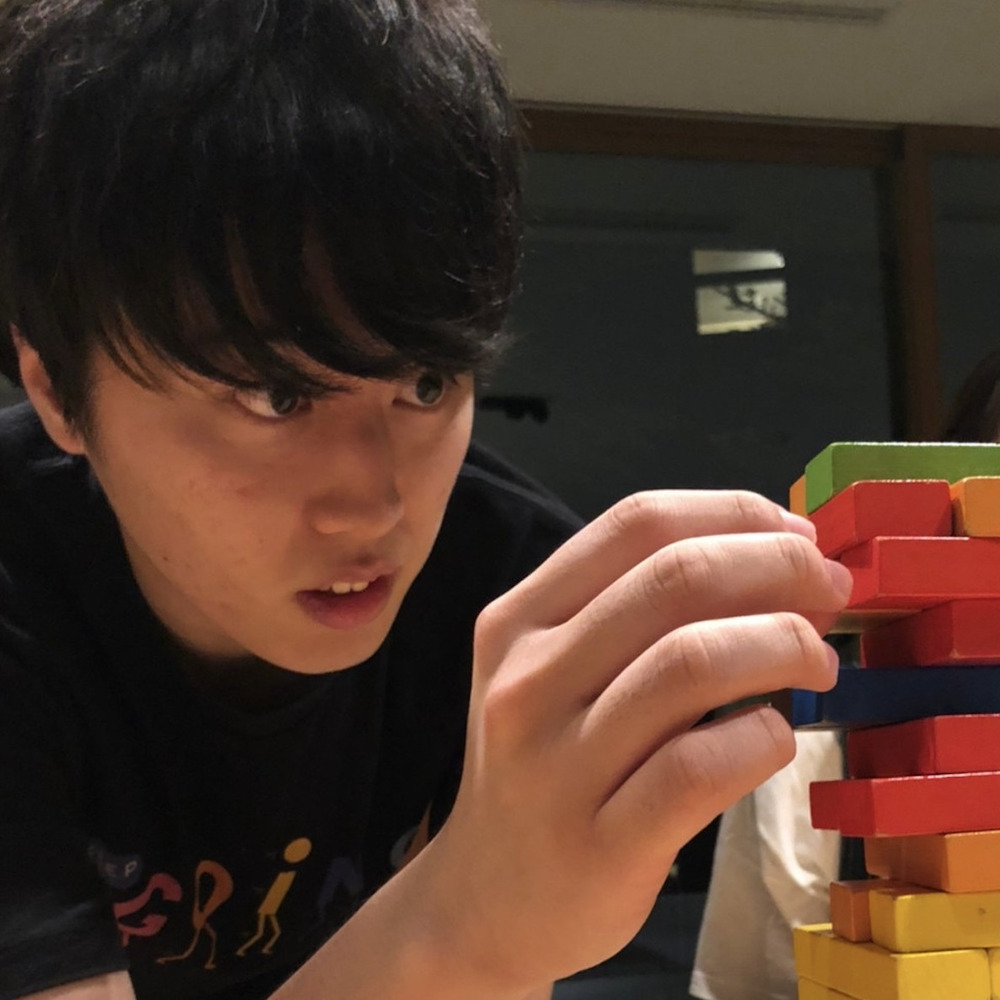Call for Applications: PFN 2024 Summer Internship in Japan
2024.03.27
At Preferred Networks (PFN), we are seeking passionate students to join our summer internship program. We welcome applicants from diverse academic backgrounds in computer science—not limited to those specializing in machine learning.
Index
- About PFN Internship
- Internship Courses and Themes
- Qualifications
- How To Apply
- Screening Process
- Salary and Benefits
About PFN Internship
At PFN, our mission of “making the real world computable” drives us to rapidly translate cutting-edge technologies into practical applications, thereby delivering new value to society. Our diverse and talented team of researchers and engineers engage in cutting-edge research and leverage the latest machine learning technologies across varied business sectors to solve real challenges and develop new products and services backed by substantial computational resources.
In the rapidly evolving fields of machine learning and AI, we champion a culture of humble learning and continuous growth. Embracing the challenge of fearlessly venturing into new and unfamiliar domains is at the heart of PFN Values. Our internship offers a prime opportunity for students to experience firsthand our research and development efforts that truly embody these values. If you are keen on cutting-edge R&D and the technologies that empower it, eager to apply advanced machine learning technologies to real-world problems, and ready to learn and explore new fields alongside our team, we warmly welcome your application.
PFN values the diversity of our team and ensures a safe and secure workplace for everyone. We eagerly look forward to receiving applications from candidates of all races, genders, and nationalities.
Contact Us
Have questions about our internship program? Feel free to ask them via our Inquiry Form.
Whether you have questions about the selection process, specific themes, the work environment at PFN or any other aspects of the internship or about our company, please don’t hesitate to contact us.
Messages From Past Interns and PFN Employees

About Me
I’m Noboru Isobe, currently a second-year doctoral student in Mathematical Sciences at the Graduate School of the University of Tokyo, where I’ve transitioned from aeronautics in the undergraduate program to theoretical deep learning analysis. My passion for differential equations steered me towards researching Neural ODEs and diffusion models, which can be regarded as continuous limits in the layer direction. By leveraging the mathematical principles of partial differential equations (variational methods, gradient flow), I am analyzing neural network training.
My Internship Project
My internship project was centered on the theme of “Basic research to introduce structural induction bias into diffusion models.” This involved generalizing a generative model known as Flow Matching, an advanced form of diffusion models, to enable conditional generation. The outcome of the research, including the results obtained during my internship, received the excellent presentation award at the IBIS 2023 national conference. Currently, I am in the process of submitting the paper to top international conferences.
My Motivation for Joining the Internship Program
I had known about the PFN internship program, but it wasn’t until the very last day for the 2023 internship applications that a particular theme caught my attention. Among the list was a theme that resonated with my passion for theory and differential equations. This alignment with my own research areas was too compelling to pass up, so I seized the opportunity and applied.
Key Learnings From My Internship Experience
Entering the internship, I thought that my contribution would be purely theoretical. The first four weeks were entirely spent in deep theoretical discussions on the whiteboard with my mentors, without writing a single line of code. This changed dramatically when we decided to shift to implementation, a daunting task given my limited skills and a tight two-week deadline. Yet, thanks to the generous support of the cluster team and the skillful engineers at PFN, what seemed like a reckless adventure yielded fruitful results. Through this endeavor, I discovered the indispensable synergy between theoretical research and practical engineering in propelling deep learning forward.
Who Should Consider the PFN Internship
While deep learning technology is driven largely by advancements in engineering, there’s a noticeable gap in the theoretical foundation ensuring its validity. Bridging this gap requires a concerted effort, not only from those in information and engineering fields but also from students who have a deep understanding of mathematical and physical sciences acquired through rigorous university and graduate studies. PFN’s internship program is uniquely designed to welcome and challenge such theoretically inclined students as well. If your background is in the mathematical or physical sciences, it’s an opportunity to apply your knowledge and I urge you to seize this opportunity.

About Me
I am Daichi Kato, a first-year master’s student in the Department of Computer Science, Graduate School of Information Science and Technology at the University of Tokyo. I am majoring in natural language processing, with a specific focus on “language emergence”—a study of artificially generated languages through simulated conversations between neural network agents. When I am not engaged in my academic research, I apply my skills practically as a web engineer, contributing to the development of Optuna Dashboard as a part-time engineer at PFN.
My Internship Project
At the PFN 4D scanning site, setting up dozens of cameras tailored to each location’s unique environment is a complex task. Currently, we rely on camera vendors’ apps for control, but these apps often pose challenges such as compatibility issues, unstable performance, and a user interface not optimized for 4D scanning, ultimately hampering efficiency.
To tackle these issues, my project focused on creating an application dedicated to 4D scanning. The features of this application include:
- Multi-camera compatibility, designed with future expansion in mind to easily incorporate new camera models.
- Detection of hardware instability, capable of detecting problems stemming from hardware issues and notifying users with appropriate error messages.
- Optimized UI for the 4D scanning workflow, integrating essential functions used frequently in the scanning process.
Rather than a direct PC-to-camera connection, I used a Raspberry Pi with Ubuntu as a relay between the PC and the cameras. This included the development of “camera servers” capable of running the SDKs of various cameras and an “API server” to interface with the multiple camera servers, both hosted on the Raspberry Pi and the PC. The project’s frontend was developed using React + TypeScript + Vite, offering a UI through interactions with the API server, while the backend was mainly built with FastAPI + Rye.
My Motivation for Joining PFN’s Internship Program
PFN’s reputation was well-established in my academic community, especially since the company’s representative directors Mr. Nishikawa and Mr. Okanohara hail from my department. Initially, my perception of PFN was that of a distinguished AI company, primarily focused on machine learning research. Given my inclination towards a career in development, this perception made me hesitant to consider an internship at PFN.
My stance changed dramatically upon reviewing the internship projects PFN offered; I discovered an equal emphasis on development projects alongside research projects. The prospect of honing my practical development skills working alongside experts in machine learning and beyond quickly piqued my interest.
Key Learnings From My Internship Experience
Participating in PFN’s internship program went beyond just acquiring new technological skills; it also offered me a deep dive into understanding the essence of PFN’s work culture, office environment, and collaboration among its employees. Not only did I reconfirm PFN’s profound commitment to machine learning technologies, as I had expected, I was also pleasantly surprised to find an equal emphasis on practical development, and that the boundaries between researchers and engineers seemed to blur, with many employees demonstrating strong interest and capabilities in both arenas.
Who Should Consider the PFN Internship
PFN might be perceived primarily as a powerhouse in machine learning research, yet this only scratches the surface of what the company does. Beyond machine learning, PFN operates across a spectrum of businesses, powered by professionals who not only excel in their respective fields but are also deeply passionate about the technologies they work with. This environment fosters a culture where not having immediate knowledge of a technology isn’t seen as a setback but as an opportunity for learning and catching up. Interning at PFN is an exciting experience, steeped in technology and learning. Even in a brief period of less than two months, the potential for personal and professional growth is immense. If you have a passion for learning new technologies and leveraging them to create innovative things, PFN’s internship could be perfect for your ambitions.
Furthermore, PFN blurs the traditional roles between researchers and engineers, highly valuing employees who possess both skill sets. If you’re someone who finds joy in both research and engineering, or if you wish to apply both your machine learning and engineering skills, PFN presents a great opportunity to explore and expand your capabilities.
Blog article about Daichi Kato’s internship project: Development of a multi-camera control app for 4D Scanning (in Japanese)

About me
I am Choi, a 3rd year undergraduate student studying in the Undergraduate Course Program of Computer Science in Kyoto University.
A Typical Day as a PFN Intern
9:00-12:00: If there are remaining experiments from the previous day, finish them. Sync with mentor during the daily meetup about the progress, and plan what experiments to do in the afternoon.
12:00-13:00: Lunch with mentor, internship participants or members of other teams. This is a good opportunity to get to know more about what other internship participants are working on, or about the interests of other members.
13:00-16:00: Experiment by implementing features, perform benchmarks on the implementation on the cluster, or optimize the implementation with insight gained from the benchmarks.
16:00-18:00: Discuss with mentor the results of the experimentations, and prepare slides for presentation. Also discuss what to work on the next day.
My Motivation for Joining PFN’s Internship Program
I find the theme that I have chosen – development of the atomistic simulator Matlantis – interesting because it involves a large-scale system. Also, PFN is a place where it is easy for experts of many fields to meet, so I believed that internship at PFN would be an excellent chance to learn. In addition, it is a chance to meet and learn from other university students with similar interests.
Key Learnings From My Internship Experience
Apart from the theme that I have chosen, it is a good opportunity to learn a lot from other teams. During the internship, there are opportunities to listen to presentations by other internship participants and other members, including the mid-term presentation and the PFN day. I got to learn about other fields that I don’t work on, like control engineering and education.
Who Should Consider the PFN Internship
If you are willing to learn, internship at PFN will surely be a very rewarding experience. There are many challenging and interesting problems to solve, so the more prepared you are, the more you will learn.
Blog article about Choi Chun Ming’s internship project:OpenTelemetry integration for Matlantis

About Me
I am Ai Nozaki, pursuing my first year of master’s studies at the Graduate School of Information Science and Technology at the University of Tokyo. My current focus in graduate school is on developing a compiler designed to optimize the execution of homomorphic encryption on hardware accelerators. My interests are deeply rooted in the field of system software, with a particular focus on hardware acceleration, virtualization technology, and WebAssembly.
My Internship Project
During my time as an intern, I tackled the challenge of implementing BLAS (Basic Linear Algebra Subprograms) for use on MN-Core. The project required me to engage with the MN-Core compiler, conducting an iterative process of coding, benchmarking, analyzing, and fine-tuning the BLAS—a basic workload in high-performance computing. The initial phase of the internship presented a steep learning curve to familiarize myself with the MN-Core architecture and compiler. However, my familiarity with MN-Core deepened with time, so did my ability to predict and control its behavior more effectively, enabling me to devise strategies that pushed my implementations closer to their theoretical values.
My Motivation for Joining PFN’s Internship Program
The catalyst for my application to the internship program was an initial fascination with MN-Core, sparked by PFN’s engineering blog posts. I was very curious about the cutting-edge research and development happening in the company. Though I only knew PFN was one of the leading companies specializing in deep learning, discovering its involvement in a wide array of projects—from infrastructure to drug discovery—also steered me toward the decision to apply for the program.
Key Learnings From My Internship Experience
Throughout my internship, daily sync meetings with my mentors were invaluable, offering deep insights into writing efficient programs for accelerators and exploring the specifics of how MN-Core achieves such efficiency. A unique experience was the hands-on opportunity to work with actual ASIC accelerators—an opportunity beyond my reach had I not been part of this program. This experience brought to life the concepts I had previously encountered only in academic papers—from understanding the various types of arithmetic units to grasping the memory size in these systems. While my tasks primarily centered around the implementation and tuning for MN-Core, I’ve honed a way of thinking that I can integrate into my academic research.
Who Should Consider the PFN Internship
This internship program offers more than just professional growth; it’s a vibrant period filled with daily interactions, collaborative learning, and networking with fellow interns and PFN employees. Regardless of whether the internship theme directly matches your academic background, the opportunity to apply and deepen your skills in a new context is invaluable. If any of the project themes intrigue you, consider applying!
Blog article about Ai Nozaki’s internship project: BLAS implementation for MN-Core (in Japanese)

About Me
Hello, I am Kohei Sugihara. At PFN, I am mainly working on storage engineering with the infrastructure team that operates our supercomputers MN-2 and MN-3. Before joining PFN, I dedicated myself to the research on parallel file systems at the graduate school of the University of Tsukuba. I had been transferred from a national technical college to the third year in the university. My interest has since broadened to encompass the fields of high-performance computing, system software, and distributed file systems.
At PFN, we manage more than 30PB of internal storage, a figure that grows each year to meet the company’s increasing demands for computational power and data storage. Scaling up these systems presents unique challenges, as systems that function smoothly on a smaller scale often encounter issues when expanded. My role allows me to contribute across various areas, including automation and energy-saving technologies for storage servers, server capacity efficiency methods, and performance-boosting technologies to reduce latency and ensure bandwidth availability, and fault tolerance and redundancy technologies.
My Internship Project
My internship project was focused on developing a distributed cache system specifically designed for distributed learning workloads and creating a prototype that enables fast distribution of training data from the file system directly into the host’s main memory. To maximize the potential of supercomputers’ high-bandwidth networks, I explored the use of an RDMA-based protocol that makes direct use of InfiniBand Verbs. This exploration led to the implementation of a zero-copy file transfer protocol for Python buffers. Deep learning workloads require the shuffling of training data, a process that challenges conventional caching mechanisms relying on time locality. By focusing on the difference between file system latency and host-to-host latency, I explored a mechanism that could facilitate asynchronous and low-latency data exchanges between hosts.
My Motivation for Joining PFN’s Internship Program
My interest has always leaned towards the underlying computer systems that support applications—specifically, web backend development, database operations. During my university lab days, I was drawn towards server management and operation, rather than creating applications. Initially, I perceived PFN’s internship program as primarily focused on the research, development, and application of deep learning technologies. However, upon reviewing the internship details, I learned that PFN was seeking interns in the infrastructure domain as well. Motivated by the prospect of working with PFN’s own supercomputers, I decided to apply for the internship.
Key Learnings From My Internship Experience
My days during the internship were spent with enthusiasm and joy thinking about the design and implementation of a distributed cache system. Through discussions and code review sessions with mentors, I was able to advance my implementation skills.
Moreover, the internship has also provided me with great opportunities to learn about research methodologies. My exploration into the design of distributed cache systems involved an extensive survey of existing technologies in distributed memory and cache, as well as RDMA-based protocols. Engaging in daily research discussions sharpened my discussion skills as well. Presenting my work in midterm and final presentations, including LT and poster sessions, opened avenues for interaction with other team members and interns. These moments not only allowed me to showcase my project but also to practice and enhance my ability to communicate intricate technical concepts.
Who Should Consider the PFN Internship
PFN is home to a vibrant community of professionals from a variety of backgrounds, not just limited to deep learning, as evidenced by my own experience. Our internship program is designed to cover a broad spectrum of research and development projects, and if any of these themes resonate with your interests or spark your curiosity, I warmly encourage you to apply.
Internship Courses and Themes
This year, PFN’s internship program offers three unique courses, each with its own duration and set of research and development themes. As an intern, you will have the privilege of being mentored by our experts across diverse domains including deep learning, computer vision, robotics, life science, user interface, distributed processing, and product/service development. This program, regardless of any course and theme, not only allows you to engage in research and development firsthand but also provides opportunities for valuable interactions with PFN’s management team and our full-time professionals.
Once we receive your application, you will receive a notification about an assignment for screening purposes. Please indicate your preferred course and theme when you submit this assignment. The actual theme and exact scope of your internship work will then be determined through discussions with PFN members during the selection phase.
Click here for the full list of internship themes (PDF)
Please note, any intellectual property generated during your internship will belong to PFN. We ask that you refrain from incorporating research themes from your affiliated institution to avoid conflicts. Additionally, we encourage the publication of your work through OSS contributions, research papers, or blog posts on the PFN Research & Development Blog, provided there are no confidentiality or IP rights issues.
4-Week Group Development Course
This is a group-based internship, where you will collaborate in teams to tackle development challenges alongside PFN’s experienced mentors. Your group, predetermined by PFN and revealed at the internship’s outset, will work on one of two themes: Application and Service Development or Data Science.
- Period: Monday, August 26 through Friday, September 20, 2024
- Commitment to full participation throughout the course period is required in principle.
10-Day Short-Term Development Course
This is a short-term internship where you will join one of PFN’s project teams to engage in hands-on research and development activities.
- Period: Two sessions are available, each spanning 10 business days.
- Monday, August 19 through Friday, August 30, 2024
- Friday, September 6 through Friday, September 20, 2024
- Attendance is mandatory, in principle, for all days within the chosen duration.
7-Week R&D Course
You will spend seven weeks deeply engaged in in-depth discussion and R&D work, mentored by PFN’s engineers and researchers, aiming to achieve meaningful R&D results.
- Period: Thursday, August 8 through Friday, September 27, 2024
- In principle, the internship period must be within your university’s official summer break. Start and end dates are flexible, subject to your academic schedules and other considerations.
- Absences for lab activities, academic conference attendance, or personal reasons such as returning to your hometown will be flexibly accommodated.
Themes within the 7-week R&D course are categorized as either a “project internship” or a “research internship” based on the nature of the work, guiding you in your theme selection.
- Project Internship
- Through our Project Internship, you will engage in hands-on project work with a focus on practical problem-solving, the research and development of core technologies, and the development of products and services.
- Research Internship
- Our Research Internship invites you to engage in pioneering and ambitious research projects with the goal of publication in top-level international conferences.
Some of the achievements from past years:
- OpenTelemetry integration for Matlantis
- meta-fuse-csi-plugin: A CSI plugin for All FUSE implementations
- Unified evaluation of deep option pricing methods
Qualifications
To be eligible for our internship program, applicants must satisfy the following prerequisites:
- Student Status: Applicants must be a student in any academic year, with no prior full-time employment history
- Language Proficiency: Fluency in either Japanese or English is required, with the ability to engage in proactive communication.
- Office Attendance: Applicants must be able to work at our Otemachi office near Tokyo Station on required weekdays. Accommodation support is available for those who live far away (For details, see the Support for Participants from Distant Areas section)
- Legal Eligibility: Applicants must have the legal right to undertake internship or part-time work in Japan (e.g., Japanese nationality, permanent residency, student visa).
- Equipment: A personal laptop suitable for development tasks must be supplied by applicants during the internship.
Additional consideration will be given to applicants with knowledge and experience in areas related to our Internship Courses and Themes. For details, please refer to the specific theme descriptions provided.
We welcome applications from those new to full-scale development and also encourage those who have applied in the previous years to consider reapplying. However, previous participants in our past internship programs are not eligible to apply again.
Should you require university credit for this internship, advance communication with us is required. Please note, however, that we may not accommodate requests involving complex administrative procedures.
For International Students
If you are an international student studying at university in Japan under a student visa, you must apply for and obtain the “Permission to Engage in Activity other than that Permitted under the Status of Residence: 資格外活動許可 in Japanese” prior to commencing your internship. Upon signing the contract of employment, you will need to submit a copy of your residence card.
Development Environment
For the duration of the internship, participants must use their own laptop PCs for all development-related tasks. Please note that the company will not provide laptops for intern use.
Important Notes for Your Laptop:
- The company will not provide laptops or financial assistance for purchasing one. Additionally, laptops loaned by your university or organization cannot be used for internship purposes.
- The laptop must be your own or belong to your family member.
- You may be asked to install specific software as required by your internship project.
Make sure your laptop meets the BYOD (Bring Your Own Device) policies of your educational institution. Below, we provide recommended PC specifications to guide your preparation for the internship:
- OS:We recommend using the latest version of Windows or macOS (Windows 11 or macOS 14)
- Otherwise, use an OS version currently supported by the manufacturer
- If you prefer Linux or other OS, please mention this in your application for further discussion on suitability during the selection process
- Network: Wireless LAN capability
- The device should be capable of handling online meetings and web browsing without difficulty.
- It is not necessary for your PC to support highly computational or data-intensive tasks like machine learning model training.
How to Apply
- Click this Application Form to apply.
- ※You need to log in with your Google account to access the application form.
- ※Personal information entered in the application form will be used for the purpose of intern selection and recruitment activities.
【Application Deadline】
- 23:59 on Sunday, April 21, 2024 (Japan time, no application will be accepted after the deadline)
【Important Notes Upon Applying】
- The file format of your resume must be PDF only. Please submit it via the application form.
- We will use the e-mail address you enter in the application form as your ID for the selection process. Please use the same email address when you submit assignments or send inquiries during the screening period.
【Tips for Writing Your Resume】
- Be as specific as possible in your resume so that we have all the information we need to be able to evaluate your abilities and experience.
- We will read your resume and determine whether it matches the theme you are applying for. Please be specific about your abilities and experiences related to the theme.
- Please describe your award history, research presentations, and coding experience as comprehensively as possible. Even if you find your prior work unremarkable, the information may be valuable in the evaluation process.
Screening Process
Assignment assessment (coding test & thematic assignment) → Online interview → Final result announcement
- 23:59 on Sunday, April 21 : Application deadline
- Friday, April 26 : PFN sends assignments to applicants
- 23:59 on Monday, May 6 : Deadline for submission of assignments
- Mid-May to late June : Online interview
- Monday, July 1 : Final result announcement
Salary and Benefits
Hourly Wage
- 2,500 yen per hour for technical college, university, and graduate school students
Working hours
- Eight hours in principle. five days a week excluding Saturdays, Sundays, and public holidays
Workplace
PFN Office is located in Otemachi Bldg., 1-6-1, Otemachi, Chiyoda-ku, Tokyo, Japan 100-0004
You will work in a hybrid style of both working in-office and from home. We do not offer a fully remote internship. Depending on the specific requirements of your chosen course or project, in-office attendance might be necessary for the entire duration of your internship. Full details about your work location requirements will be shared before we make a job offer.
For those days you work in our office, PFN will cover the commute expenses between your home/temporary lodging and our office via company-approved routes.
Support for Participants from Distant Areas
For interns joining from distant locations, PFN will provide financial assistance to cover both travel and lodging expenses during the internship program.
- Travel cost: If your participation in the internship requires long-distance travel, such as by plane or Shinkansen, PFN will cover the expenses for one round trip between the Tokyo area and your home location to facilitate your relocation.
- Accommodation support: PFN will provide an accommodation allowance of 5,500 yen per day for the entire period of your internship including holidays.
- You need to secure a place to stay by yourself. Reasonable weekly rental apartments ranging from 100,000 to 150,000 yen a month are available within a commuting distance to the PFN office.
- Please note that the accommodation allowance is subject to taxation.
Financial assistance for travel and lodging is offered to interns who live in areas outside the following prefectures as of the internship outset:
- Tokyo, Chiba, Kanagawa, Saitama, Ibaraki, Tochigi, and Gunma
Employment Type
Fixed-term employment
Depending on your assigned project, there is a possibility that your placement could be with our subsidiary, Preferred Elements, Inc. (PFE) *Working conditions at PFE are the same as those at PFN.
